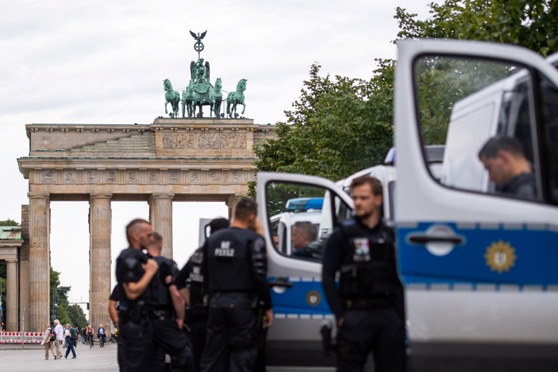Berlin police halt march against coronavirus restrictions
Saying protesters risked spreading disease
BERLIN — Thousands of Germans angered over restrictions intended to control the coronavirus marched in Berlin on Saturday (29), but the police dispersed them after an hour because many were violating the very social-distancing rules championed by Chancellor Angela Merkel that they say threaten their rights and livelihoods.
Many of the marchers were bunched together and mask-less in Berlin’s streets, with some shouting ‘Merkel must go!’ and others carrying American flags and a photo of President Donald Trump that read, ‘Help’.
The city’s police chief, Barbara Slowik, had earlier warned that even though the march was allowed to proceed after a week of legal wrangling, “we will not be able or willing to watch tens of thousands assemble and create infection risks”.
Despite some threats of violence from far-right groups, most marchers dispersed peacefully as police bullhorns declared the march an impermissible risk, and they moved to a nearby park for a rally that the police did not stop. But the events laid bare a percolating resentment of Merkel’s handling of the coronavirus threat despite its success compared with the response in other developed countries, especially the United States.
And it came as Merkel warned that infections would likely rise as winter approaches, with more people confined indoors, which could mean a return to a more severe lockdown like the one this past spring, which is credited with helping limit the spread of the virus.
“We must expect that some things will be even more difficult in the coming months,” Merkel said on Friday at her traditional summer news conference.
Officials estimated that 18,000 people had turned out to march, and the park rally was expected to draw at least that many.
Although Germany has been celebrated for its ability to manage the pandemic, with schools reopening and signs of an economic rebound, many Germans who have found themselves out of work or furloughed are angry and afraid they could not withstand a second lockdown.
“This is the second demonstration I’ve taken part in my lifetime,” said Thomas Dausend, 64, from southwestern Germany. “I’m here for my children and my grandchildren.”
-New York Times


